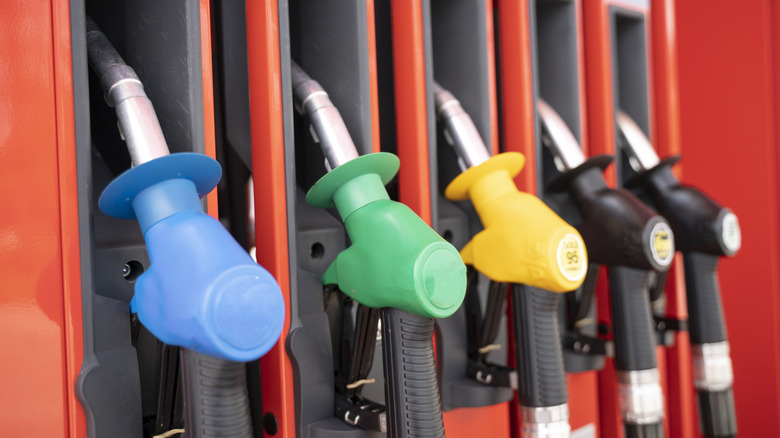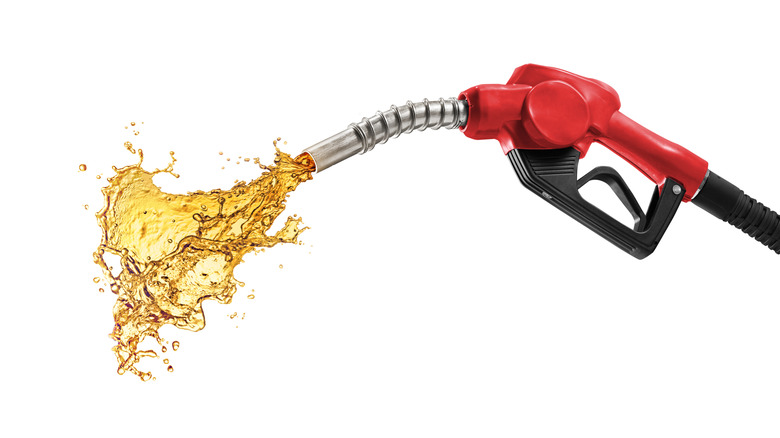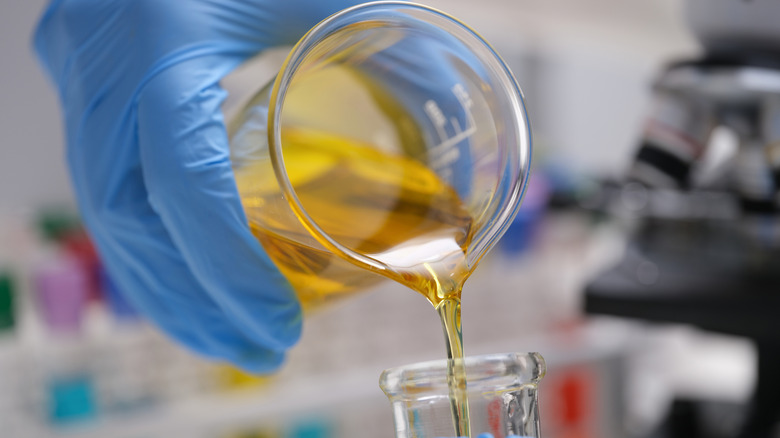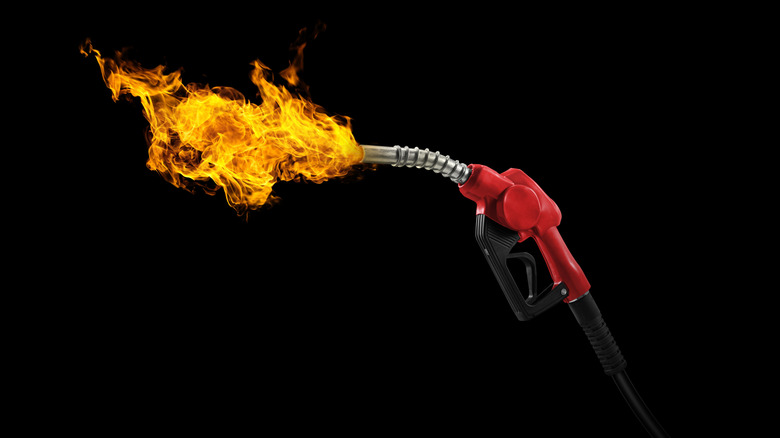Diesel Vs. Gasoline: How To Tell The Two Fuels Apart By Sight (Or Smell)
Diesel and gasoline are the lifeblood of modern transportation, each playing a crucial role in powering our world. These fuels are derived from crude oil through fractional distillation, where they are separated based on their boiling points. However, despite their shared origin, diesel and gasoline serve different purposes. Diesel is the preferred choice for heavy machinery and vehicles that prioritize torque and efficiency, making this fuel a backbone of industries for construction and transportation. In contrast, gasoline powered cars are designed for speed and agility, which is why this fuel appeals to everyday drivers and performance enthusiasts.
Both fuels have unique properties, which makes them non-interchangeable. Beyond their different boiling points and compositions, diesel and gasoline also differ in physical traits such as appearance and smell. But, to the untrained eye — or nose — if both fuels were placed in identical containers, could someone easily tell them apart?
With years of experience working on cars and fuel systems, I have had numerous opportunities to handle engines and troubleshoot fuel-related issues. I've also gained a deep understanding of the distinct characteristics of diesel and gasoline firsthand, which has deepened my knowledge of the differences between diesel and gasoline engines and how their respective fuels differ in uses, performance metrics, and density.
Diesel is thicker and denser
One of the key differences between diesel and gasoline lies in the density. Diesel fuel is thicker and more viscous compared to the lighter, more refined gasoline. These differences in refinement make gasoline thinner and more volatile, which makes it burn faster and produce more horsepower. If you've ever spilled a drop of each on your hands, you would notice that gasoline evaporates quickly without a trace, especially on a warm day, while diesel feels greasy and lingers longer. A simple test using two jars can illustrate this difference. If you poured a small amount of each into separate containers, you would notice that diesel appears dense and oily, while gasoline closely resembles water.
Diesel's thicker composition also makes it less consistent at varying temperatures. As the weather cools, diesel becomes somewhat thicker and cloudier — a phenomenon known as Cloud Point. This occurs when the paraffin in the diesel slowly crystallizes into wax. This is why starting your diesel engine cold can be challenging. Without knowledge of the tips for starting your diesel engine in cold weather — typically involving the use of an engine block heater — you may not be able to start your engine at all. In contrast, gasoline is less affected by temperature changes.
Diesel's higher energy density also sets it apart from gasoline. Diesel contains 15-20% more energy than an equivalent amount of gasoline. This is why it's an efficient choice for heavy-duty engines that require more torque and power at lower RPMs, unlike gasoline engines.
Differences in smells
A noticeable way to differentiate diesel from gasoline is through their distinct smells. Diesel has a slightly sweeter and heavier odor, while gasoline has a sharp pungent scent that is reminiscent of paint thinner or kerosene. For some, prolonged exposure to gasoline's strong scent can cause nausea. On the other hand, the smell of diesel, while also potent, tends to be less overwhelming.
These differences in smell are closely tied to their physical properties. Being the less volatile of the two fuels, diesel carries a "greasy" quality that influences its odor. This makes the scent less harsh but more lingering compared to gasoline. However, gasoline's thinner consistency and higher volatility is what gives it its more aggressive and quickly recognizable scent.
Interestingly, the way each fuel is consumed in engines highlights the differences between them. Gasoline engines rely on the quick combustion of fuel, which aligns with the fuel's lighter, volatile nature and sharp odor. Conversely, diesel engines burn fuel more slowly, consistent with diesel's thicker, oil-like texture and less piercing scent. A quick sniff or swirl of a fuel container is often enough to discern between the two.
Chemical differences and burn rates
Another key difference between gasoline and diesel lies in their chemical properties and how they burn in their respective engine. Diesel fuel ignites at a lower autoignition temperature — around 210 degrees Celsius (or 410 degrees Fahrenheit) — compared to gasoline, which requires temperatures of up to 280 degrees Celsius (or 536 degrees Fahrenheit) to ignite. This difference gives these fuels their unique combustion behaviors. Due to its lower vapor point and rapid evaporation, gasoline burns explosively. This creates an intense and quick oxidation reaction. As mentioned, diesel burns more slowly and steadily. This leads to a slower combustion, which is associated with diesel's higher energy density.
From a safety perspective, gasoline is classified as a flammable substance because of its volatile nature, while diesel is considered combustible. For this reason, diesel is generally safer to handle because it is less likely to ignite unintentionally. Gasoline's propensity to evaporate quickly and ignite more readily explains its explosive behavior.
Why you shouldn't use the wrong fuel in an engine
The last thing you want is to pour the wrong fuel into an engine. While pouring diesel into a gas-powered engine isn't ideal, putting gasoline into a diesel-powered vehicle is even worse. Mixing up these fuels can lead to disastrous consequences for your engine. For example, modern diesel engines, in particular, have highly sensitive fuel injectors that can be damaged by gasoline, dirt, or even water. Replacing these fuel injectors is an expensive repair as well. The golden rule is to double-check that you're putting the right fuel in your vehicle.
If you accidentally put gasoline in your diesel engine or vice versa, the best course of action is to avoid starting the car. This is because starting the car could draw the wrong fuel into the fuel pump and engine block. Diesel in a gas car will likely clog the system, while gasoline in a diesel car may cause clattering or pinging sounds, which indicate improper combustion. Instead, arrange for an emergency tow to a mechanic, who will drain the diesel, flush the tank to remove any residue, and refill it with fresh fuel.




